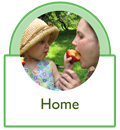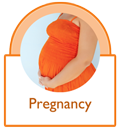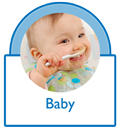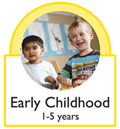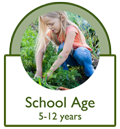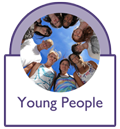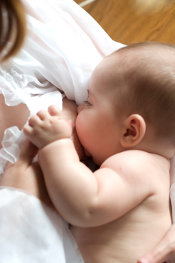
Breastfeeding is the natural way to feed your baby. Getting the help and support you need to breastfeed before and after your baby is born is important.
For baby breastfeeding
- keeps baby healthy and strong
- helps mum and baby feel close
- helps to fight sickness
- helps to prevent health problems later in life.
For mum breastfeeding
- helps recovery from giving birth
- helps mum and baby feel close
- helps to prevent health problems later in life
- breast milk is free and does not need any preparation.
Until around six months of age, breast milk is the only food or drink your baby needs.
Try to breastfeed your baby for the first 12 months. Any breastfeeding is good for both you and your baby. From then on breastfeed for as long as you and your baby are happy to.
Find out more about breastfeeding and why it’s good watch this video Breastfeeding: why it’s good ( 4 mins)
Print Breastfeeding
Feeding your newborn
Once your baby is born they are usually alert and ready to get to know you. Uninterrupted skin to skin contact is important for all mothers and babies for at least the first hour.
Babies behaviour before the first breastfeed
The first few days after your baby is born are when you learn how to get your baby on the breast. This is called attachment. Your midwife is there to support and guide you.
Breastfeeding: getting a good attachment A video (5 min) about breastfeeding with tips on good attachment
Your baby will need to feed frequently. In the early days, expect your baby to feed at least six to eight times and up to 12 times in 24 hours. This frequent feeding helps to establish breast milk supply.
Demand feeding is breastfeeding your baby based on their needs. The more often you feed the more milk you will make.
Signs that your baby is ready to feed:
- crying is a late sign of hunger – don’t wait until then
- hands up to mouth
- sucking movements
- soft cooing, sighing sounds
- head movements and stretching.
Visual guide to baby feeding cues
How to breastfeed: in pictures a visual guide on how to breastfeed in the early days
How many breast feeds does your baby need
Breast milk is made when your baby feeds. The more your baby feeds the more milk is made.
Signs that your baby is ready to feed:
- crying is a late sign of hunger – don’t wait until then
- hands up to mouth
- sucking movements
- soft cooing, sighing sounds
- head movements and stretching.
Visual guide to baby feeding cues
A baby’s stomach is very small, so it is common for newborns to feed often. In the first few weeks of life babies may feed 8 to 12 times in 24 hours.
As your baby grows this will change. Older babies will feed less often and get faster at feeding.
Remember all babies are different.
If your baby has about six or more wet nappies in 24 hours and is growing, your baby is having enough to drink.
A young baby will usually have three or more soft and runny bowel motions each day for several weeks. An older baby is likely to have fewer bowel motions.
Eating and drinking while breastfeeding
Our advice:
- Get plenty of rest.
- Drink lots of water.
- Limit caffeine*.
- Eat a variety of foods from the five food groups. This means foods made from grains, vegetables, fruit, meat and meat alternatives and dairy foods.
- Take an iodine supplement with 150 micrograms of iodine per day. If you have coeliac disease, are lactose intolerant or have a thyroid condition, talk to your doctor or pharmacist before taking an iodine supplement. You may need to take a different amount.
- No amount of alcohol is safe while breastfeeding. If you choose to drink alcohol, there are risks to both you and your baby’s health and development. The safest option is not to drink alcohol when breastfeeding.
For more information on eating well when breastfeeding
For information on eating when breastfeeding - if choosing a vegan style
* Limit caffeine to 200 milligrams (mg) from all food and drink sources of caffeine each day. This is about the same as:
- two cups of instant coffee or one espresso coffee or one coffee based cold milk drink or
- four cups of tea or
- two small cola drinks (energy drinks contain high amounts of caffeine and are not recommended during pregnancy or while breastfeeding).
Expressing and storing breast milk
Expressing breast milk can be useful if you are away from your baby for any reason.
Breast milk can be expressed by hand or by using a manual or electric breast pump.
It is important to ask for the help you need
Call the Breastfeeding 24 hour Helpline on 1800 mum 2 mum (1800 686 268) for immediate advice.
Talk your GP or child health nurse for personalized advice and support.
Book an appointment with your local Child and Family Health Nurse, call 1300 064 544
A video on common breastfeeding challenges and getting help (4min)
For health, education and community services staff
The Breastfeeding Coalition Tasmania brings together many groups interested in creating a more supportive environment for breastfeeding. The website has information and resources about breastfeeding.
Breastfeeding and returning to work
Returning to work after having a baby usually means a change in your family’s routine. Breastfeeding is the natural way to feed your baby. Any breastfeeding is good for you and your baby. With some planning by both you and your employer, you can be supported to continue to breastfeed your baby after you return to work.
Here you will find a toolkit of information to support breastfeeding while working


